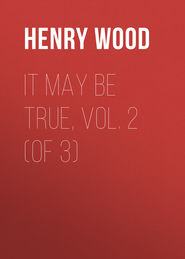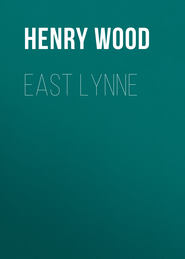По всем вопросам обращайтесь на: info@litportal.ru
(©) 2003-2024.
✖
Elster's Folly
Настройки чтения
Размер шрифта
Высота строк
Поля
"I never changed mine in my life."
"And if you had, I don't suppose you'd have changed it to one so notorious as George Gordon."
"Notorious?"
"It was a George Gordon who was the hero of that piratical affair; that mutiny on board the Morning Star."
"Ah, to be sure. And an awful villain too! A man I met in Australia knew Gordon well. But he tells a curious tale, though. He was a doctor, that Gordon; had come last from somewhere in Kirkcudbrightshire."
"He did," said Thomas Carr, quietly. "What curious tale does your friend tell?"
"Well, sir, he says—or rather said, for I've not seen him since my first visit there—that George Gordon did not sail in the Morning Star. He was killed in a drunken brawl the night before he ought to have sailed: this man was present and saw him buried."
"But there's pretty good proof that Gordon did sail. He was the ringleader of the mutiny."
"Well, yes. I don't know how it could have been. The man was positive. I never knew Gordon; so that the affair did not interest me much."
"You are doing well over there?"
"Very well. I might retire now, if I chose to live in a small way, but I mean to take a few more years of it, and go on to riches. Ah! and it was just the turn of a pin whether I went over there that second time, or whether I stopped in London to serve writs and starve."
"Val was right," thought the barrister.
On the following Saturday Mr. Carr took a return-ticket, and went down to Hartledon: as he had done once or twice before in the old days. The Hartledons had not come to town this season; did not intend to come: Anne was too happy in the birth of her baby-boy to care for London; and Val liked Hartledon better than any other place now.
In one single respect the past year had failed to bring Anne happiness—there was not entire confidence between herself and her husband. He had something on his mind, and she could not fail to see that he had. It was not that awful dread that seemed to possess him in his first wife's time; nevertheless it was a weight which told more or less on his spirits at all times. To Anne it appeared like remorse; yet she might never have thought this, but for a word or two he let slip occasionally. Was it connected with his children? She could almost have fancied so: and yet in what manner could it be? His behaviour was peculiar. He rather avoided them than not; but when with them was almost passionately demonstrative, exactingly jealous that due attention should be paid to them: and he seemed half afraid of caressing Anne's baby, lest it should be thought he cared for it more than for the others. Altogether Lady Hartledon puzzled her brains in vain: she could not make him out. When she questioned him he would deny that there was anything the matter, and said it was her fancy.
They were at Hartledon alone: that is, without the countess-dowager. That respected lady, though not actually domiciled with them during the past twelve-month, had paid them three long visits. She was determined to retain her right in the household—if right it could be called. The dowager was by far too wary to do otherwise; and her behaviour to Anne was exceedingly mild. But somehow she contrived to retain, or continually renew, her evil influence over the children; though so insidiously, that Lady Hartledon could never detect how or when it was done, or openly meet it. Neither could she effectually counteract it. So surely as the dowager came, so surely did the young boy and his sister become unruly with their step-mother; ill-natured and rude. Lady Hartledon was kind, judicious, and good; and things would so far be remedied during the crafty dowager's absences, as to promise a complete cure; but whenever she returned the evil broke out again. Anne was sorely perplexed. She did not like to deny the children to their grandmother, who was more nearly related to them than she herself; and she could only pray that time would bring about some remedy. The dowager passed her time pretty equally between their house and her son's. Lord Kirton had not married again, owing, perhaps, to the watch and ward kept over him. But as soon as he started off to the Continent, or elsewhere, where she could not follow him, then off she came, without notice, to England and Lord Hartledon's. And Val, in his good-nature, bore the infliction passively so long as she kept civil and peaceable.
In this also her husband's behaviour puzzled Anne. Disliking the dowager beyond every other created being, he yet suffered her to indulge his children; and if any little passage-at-arms supervened, took her part rather than his wife's.
"I cannot understand you, Val," Anne said to him one day, in tones of pain. "You are not as you used to be." And his only answer was to strain his wife to his bosom with an impassioned gesture of love.
But these were only episodes in their generally happy life. Never more happy, more free from any external influence, than when Thomas Carr arrived there on this identical Saturday. He went in unexpectedly: and Val's violet eyes, beautiful as ever, shone out their welcome; and Anne, who happened to have her baby on her lap, blushed and smiled, as she held it out for the barrister's inspection.
"I dare not take it," said he. "You would be up in arms if it were dropped. What is its name?"
"Reginald."
A little while, and she carried the child away, leaving them alone. Mr. Carr declined refreshment for the present; and he and Val strolled out arm-in-arm.
"I have brought you an item of news, Hartledon. Gorton has turned up."
"Not Gordon?"
"No. And what's more, Gorton never was Gordon. You were right, and I was wrong. I would have bet a ten-pound note—a great venture for a barrister—that the men were the same; never, in point of fact, had a doubt of it."
"You would not listen to me," said Val. "I told you I was sure I could not have failed to recognize Gordon, had he been the one who was down at Calne with the writ."
"But you acknowledged that it might have been he, nevertheless; that his red hair might have been false; that you never had a distinct view of the man's face; and that the only time you spoke to him was in the gloaming," reiterated Thomas Carr. "Well, as it turns out, we might have spared half our pains and anxiety, for Gorton was never any one but himself: an innocent sheriff's officer, as far as you are concerned, who had never, in his life set eyes on Val Elster until he went after him to Calne."
"Didn't I say so?" reiterated Val. "Gordon would have known me too well to arrest Edward for me."
"But you admitted the general likeness between you and your brother; and Gordon had not seen you for three years or more."
"Yes; I admitted all you say, and perhaps was a little doubtful myself. But I soon shook off the doubt, and of late years have been sure that Gordon was really dead. It has been more than a conviction. I always said there were no grounds for connecting the two together."
"I had my grounds for doing it," remarked the barrister. "Gorton, it seems, has been in Australia ever since. No wonder Green could not unearth him in London. He's back again on a visit, looking like a gentleman; and really I can't discover that there was ever anything against him, except that he was down in the world. Taylor met him the other day, and I had him brought to my chambers; and have told you the result."
"You do not now feel any doubt that Gordon's dead?"
"None at all. Your friend, Gordon of Kircudbright, was the one who embarked, or ought to have embarked, on the Morning Star, homeward bound," said Mr. Carr. And he forthwith told Lord Hartledon what the man had said.
A silence ensued. Lord Hartledon was in deep and evidently not pleasant thought; and the barrister stole a glance at him.
"Hartledon, take comfort. I am as cautious by nature as I believe it is possible for any one to be; and I am sure the man is dead, and can never rise up to trouble you."
"I have been sure of that for years," replied Hartledon quietly. "I have just said so."
"Then what is disturbing you?"
"Oh, Carr, how can you ask it?" came the rejoinder. "What is it lies on my mind day and night; is wearing me out before my time? Discovery may be avoided; but when I look at the children—at the boy especially—it would have turned some men mad," he more quietly added, passing his hand across his brow. "As long as he lives, I cannot have rest from pain. The sins of the fathers—"
"Yes, yes," interposed Mr. Carr, hastily. "Still the case is light, compared with what we once dreaded."
"Light for me, heavy for him."
Mr. Carr remained with them until the Monday: he then went back to London and work; and time glided on again. An event occurred the following winter which shall be related at once; more especially as nothing of moment took place in those intervening months needing special record.
The man Pike, who still occupied his shed undisturbed, had been ailing for some time. An attack of rheumatic fever in the summer had left him little better than a cripple. He crawled abroad still when he was able, and would do so, in spite of what Mr. Hillary said; would lie about the damp ground in a lawless, gipsying sort of manner; but by the time winter came all that was over, and Mr. Pike's career, as foretold by the surgeon, was drawing rapidly to a close. Mrs. Gum was his good Samaritan, as she had been in the fever some years before, going in and out and attending to him; and in a reasonable way Pike wanted for nothing.
"How long can I last?" he abruptly asked the doctor one morning. "Needn't fear to say. She's the only one that will take on; I shan't."
He alluded to Mrs. Gum, who had just gone out. The surgeon considered.
"Two or three days."
"As much as that?"
"I think so."
"Oh!" said Pike. "When it comes to the last day I should like to see Lord Hartledon."
"Why the last day?"
The man's pinched features broke into a smile; pleasant and fair features once, with a gentle look upon them. The black wig and whiskers lay near him; but the real hair, light and scanty, was pushed back from the damp brow.
"No use, then, to think of giving me up: no time left for it."
"And if you had, I don't suppose you'd have changed it to one so notorious as George Gordon."
"Notorious?"
"It was a George Gordon who was the hero of that piratical affair; that mutiny on board the Morning Star."
"Ah, to be sure. And an awful villain too! A man I met in Australia knew Gordon well. But he tells a curious tale, though. He was a doctor, that Gordon; had come last from somewhere in Kirkcudbrightshire."
"He did," said Thomas Carr, quietly. "What curious tale does your friend tell?"
"Well, sir, he says—or rather said, for I've not seen him since my first visit there—that George Gordon did not sail in the Morning Star. He was killed in a drunken brawl the night before he ought to have sailed: this man was present and saw him buried."
"But there's pretty good proof that Gordon did sail. He was the ringleader of the mutiny."
"Well, yes. I don't know how it could have been. The man was positive. I never knew Gordon; so that the affair did not interest me much."
"You are doing well over there?"
"Very well. I might retire now, if I chose to live in a small way, but I mean to take a few more years of it, and go on to riches. Ah! and it was just the turn of a pin whether I went over there that second time, or whether I stopped in London to serve writs and starve."
"Val was right," thought the barrister.
On the following Saturday Mr. Carr took a return-ticket, and went down to Hartledon: as he had done once or twice before in the old days. The Hartledons had not come to town this season; did not intend to come: Anne was too happy in the birth of her baby-boy to care for London; and Val liked Hartledon better than any other place now.
In one single respect the past year had failed to bring Anne happiness—there was not entire confidence between herself and her husband. He had something on his mind, and she could not fail to see that he had. It was not that awful dread that seemed to possess him in his first wife's time; nevertheless it was a weight which told more or less on his spirits at all times. To Anne it appeared like remorse; yet she might never have thought this, but for a word or two he let slip occasionally. Was it connected with his children? She could almost have fancied so: and yet in what manner could it be? His behaviour was peculiar. He rather avoided them than not; but when with them was almost passionately demonstrative, exactingly jealous that due attention should be paid to them: and he seemed half afraid of caressing Anne's baby, lest it should be thought he cared for it more than for the others. Altogether Lady Hartledon puzzled her brains in vain: she could not make him out. When she questioned him he would deny that there was anything the matter, and said it was her fancy.
They were at Hartledon alone: that is, without the countess-dowager. That respected lady, though not actually domiciled with them during the past twelve-month, had paid them three long visits. She was determined to retain her right in the household—if right it could be called. The dowager was by far too wary to do otherwise; and her behaviour to Anne was exceedingly mild. But somehow she contrived to retain, or continually renew, her evil influence over the children; though so insidiously, that Lady Hartledon could never detect how or when it was done, or openly meet it. Neither could she effectually counteract it. So surely as the dowager came, so surely did the young boy and his sister become unruly with their step-mother; ill-natured and rude. Lady Hartledon was kind, judicious, and good; and things would so far be remedied during the crafty dowager's absences, as to promise a complete cure; but whenever she returned the evil broke out again. Anne was sorely perplexed. She did not like to deny the children to their grandmother, who was more nearly related to them than she herself; and she could only pray that time would bring about some remedy. The dowager passed her time pretty equally between their house and her son's. Lord Kirton had not married again, owing, perhaps, to the watch and ward kept over him. But as soon as he started off to the Continent, or elsewhere, where she could not follow him, then off she came, without notice, to England and Lord Hartledon's. And Val, in his good-nature, bore the infliction passively so long as she kept civil and peaceable.
In this also her husband's behaviour puzzled Anne. Disliking the dowager beyond every other created being, he yet suffered her to indulge his children; and if any little passage-at-arms supervened, took her part rather than his wife's.
"I cannot understand you, Val," Anne said to him one day, in tones of pain. "You are not as you used to be." And his only answer was to strain his wife to his bosom with an impassioned gesture of love.
But these were only episodes in their generally happy life. Never more happy, more free from any external influence, than when Thomas Carr arrived there on this identical Saturday. He went in unexpectedly: and Val's violet eyes, beautiful as ever, shone out their welcome; and Anne, who happened to have her baby on her lap, blushed and smiled, as she held it out for the barrister's inspection.
"I dare not take it," said he. "You would be up in arms if it were dropped. What is its name?"
"Reginald."
A little while, and she carried the child away, leaving them alone. Mr. Carr declined refreshment for the present; and he and Val strolled out arm-in-arm.
"I have brought you an item of news, Hartledon. Gorton has turned up."
"Not Gordon?"
"No. And what's more, Gorton never was Gordon. You were right, and I was wrong. I would have bet a ten-pound note—a great venture for a barrister—that the men were the same; never, in point of fact, had a doubt of it."
"You would not listen to me," said Val. "I told you I was sure I could not have failed to recognize Gordon, had he been the one who was down at Calne with the writ."
"But you acknowledged that it might have been he, nevertheless; that his red hair might have been false; that you never had a distinct view of the man's face; and that the only time you spoke to him was in the gloaming," reiterated Thomas Carr. "Well, as it turns out, we might have spared half our pains and anxiety, for Gorton was never any one but himself: an innocent sheriff's officer, as far as you are concerned, who had never, in his life set eyes on Val Elster until he went after him to Calne."
"Didn't I say so?" reiterated Val. "Gordon would have known me too well to arrest Edward for me."
"But you admitted the general likeness between you and your brother; and Gordon had not seen you for three years or more."
"Yes; I admitted all you say, and perhaps was a little doubtful myself. But I soon shook off the doubt, and of late years have been sure that Gordon was really dead. It has been more than a conviction. I always said there were no grounds for connecting the two together."
"I had my grounds for doing it," remarked the barrister. "Gorton, it seems, has been in Australia ever since. No wonder Green could not unearth him in London. He's back again on a visit, looking like a gentleman; and really I can't discover that there was ever anything against him, except that he was down in the world. Taylor met him the other day, and I had him brought to my chambers; and have told you the result."
"You do not now feel any doubt that Gordon's dead?"
"None at all. Your friend, Gordon of Kircudbright, was the one who embarked, or ought to have embarked, on the Morning Star, homeward bound," said Mr. Carr. And he forthwith told Lord Hartledon what the man had said.
A silence ensued. Lord Hartledon was in deep and evidently not pleasant thought; and the barrister stole a glance at him.
"Hartledon, take comfort. I am as cautious by nature as I believe it is possible for any one to be; and I am sure the man is dead, and can never rise up to trouble you."
"I have been sure of that for years," replied Hartledon quietly. "I have just said so."
"Then what is disturbing you?"
"Oh, Carr, how can you ask it?" came the rejoinder. "What is it lies on my mind day and night; is wearing me out before my time? Discovery may be avoided; but when I look at the children—at the boy especially—it would have turned some men mad," he more quietly added, passing his hand across his brow. "As long as he lives, I cannot have rest from pain. The sins of the fathers—"
"Yes, yes," interposed Mr. Carr, hastily. "Still the case is light, compared with what we once dreaded."
"Light for me, heavy for him."
Mr. Carr remained with them until the Monday: he then went back to London and work; and time glided on again. An event occurred the following winter which shall be related at once; more especially as nothing of moment took place in those intervening months needing special record.
The man Pike, who still occupied his shed undisturbed, had been ailing for some time. An attack of rheumatic fever in the summer had left him little better than a cripple. He crawled abroad still when he was able, and would do so, in spite of what Mr. Hillary said; would lie about the damp ground in a lawless, gipsying sort of manner; but by the time winter came all that was over, and Mr. Pike's career, as foretold by the surgeon, was drawing rapidly to a close. Mrs. Gum was his good Samaritan, as she had been in the fever some years before, going in and out and attending to him; and in a reasonable way Pike wanted for nothing.
"How long can I last?" he abruptly asked the doctor one morning. "Needn't fear to say. She's the only one that will take on; I shan't."
He alluded to Mrs. Gum, who had just gone out. The surgeon considered.
"Two or three days."
"As much as that?"
"I think so."
"Oh!" said Pike. "When it comes to the last day I should like to see Lord Hartledon."
"Why the last day?"
The man's pinched features broke into a smile; pleasant and fair features once, with a gentle look upon them. The black wig and whiskers lay near him; but the real hair, light and scanty, was pushed back from the damp brow.
"No use, then, to think of giving me up: no time left for it."











